How a system designed to identify potential terrorists is catching innocent people and destroying freedom of speech.
I’ve become quite disconnected from life in the UK in all my years of living overseas, and every time I look back, it becomes harder to recognise the place where I grew up.
Take this example: during a school fire drill, an 11-year-old boy says that he hopes the school burns down. To be honest, it sounds like the kind of flippant comment I might have made at that age, and my classmates would have chuckled and life would have moved on.
But Britain today is different. The boy was different too: Zain was Muslim. So he was referred to the police as a potential terrorist under the Prevent system. If you’re not familiar with Prevent, it’s the UK’s strategy for identifying potential terrorists before they carry out destructive acts.
I was working just a few blocks from the World Trade Center on September 11, 2001. I got a very close look at the impact of terrorism that day, and I remember the heart-breaking posters that fluttered on walls and lampposts for weeks afterwards, bearing grainy photos of smiling faces and heartfelt pleas for information. We all knew these people were not missing but dead, but who could blame the families for clinging to a shred of hope, and who could take the posters down? So they stayed up there, slowly disintegrating in the wind and rain of the ensuing winter.
So of course I want to prevent anything like that from happening again by identifying dangerous extremists before they can hijack the planes or set off the bombs. But there are serious problems in how it’s being done, and it starts with that word “potential” I mentioned earlier. What is a potential terrorist?
I think most of us would agree that someone who has formed a specific plan of violence and either has the means or is working on getting the means to carry it out is a serious danger. If the police uncover a plot like that, they should take action to stop it before a lot of people die.
But the Prevent system is much, much broader than that. It aims to identify people who are at risk of “radicalisation” or “extremism”, and those are much vaguer terms that can be interpreted in a whole variety of ways. It takes us into a murky “pre-crime” space of dangerous thoughts and beliefs. The recent Amnesty International report is entitled “This is the Thought Police”, and I think that’s a fair characterisation.
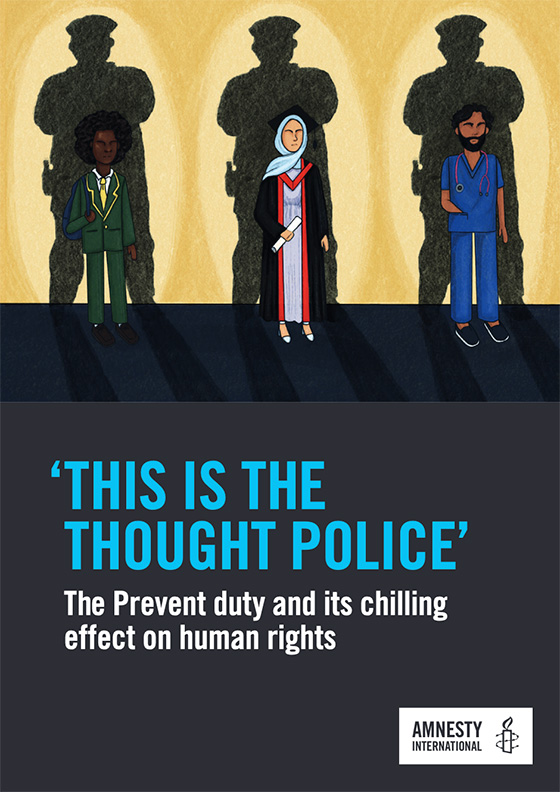
I think most of us would also agree that an 11-year-old kid making an off-colour remark about a fire is not a potential terrorist. The police also came to the same conclusion, quickly dismissing the case. However, Zain remains on Home Office databases, and he could still be stopped at airports on family holidays or have his future choices curtailed in various ways—it’s really not clear how extensively this database is being used or how it can be modified, and that lack of transparency is a big problem.
Here’s another example from the report: Aran, a trade unionist, was referred to counter-terrorism police by their employer, who expressed concern that Aran’s views were “extremist” and “communist” and that advocating for abolishing the police was “not in line with British values.”
OK, we’re in really murky water now. For one thing, it’s problematic that employers can intimidate workers in this way. Secondly, I don’t think it’s a coincidence that Aran is a trade unionist. Thirdly, I also don’t think it’s a coincidence that both Aran and Zain are Muslims. The Prevent system was originally designed specifically to deal with Islamic extremism at the height of the “War on Terror”, and although it has now been broadened to include other types of extremism, the Amnesty report makes a good case that it’s discriminatory in practice.
Also, who gets to decide what “British values” are? This is a highly contested concept, and if you ask a hundred British people, you’ll get a hundred different answers. Most of us would surely agree that violent massacres are against British values (Amritsar and Bloody Sunday notwithstanding). But police abolition? Anti-capitalism? These are political views that many people will disagree with, but they’re not inherently dangerous or anti-British.
We could say that Aran’s employer and Zain’s teacher were just being over-zealous, but the way the system is set up makes it very likely that people will behave in that way. Here’s how MI5 described “domestic extremism” in a 2017 report:
Individuals, groups and events (including protests) linked to Extreme Right Wing, Extreme Left Wing, Animal Rights and Environmental causes, where there is a likelihood of significantly affecting community tension, or causing economic or reputational impact to the UK.
That could include a lot of us, right? Although they don’t use that specific terminology today, the UK government has persistently conflated activism with terrorism and painted it as a threat, as shown by the recent criminalisation of protest. And here’s a chilling image from the Amnesty report showing a guide published by a local statutory agency:
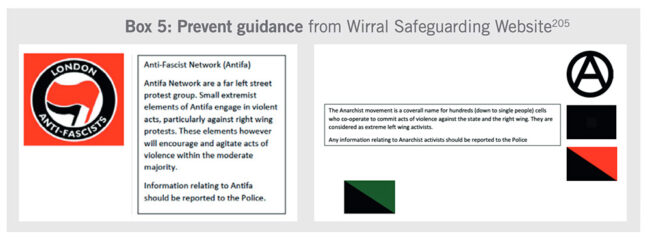
According to my understanding, “antifa” simply means “antifascist”. I am antifascist, and I thought that most British people were too. Our grandparents fought World War II largely on that basis. Apparently we should all be reported to the police.
Of course, there are antifascists who resort to violence, just as there are anarchists, environmentalists, and members of many other groups who resort to violence. But sweeping masses of people into a huge dragnet just harms lots of innocent people, chills free speech, and makes it harder to find the people who really are a threat.
In addition, the Prevent system doesn’t just allow citizens to report each other to the authorities: people like civil servants, social workers, care-givers, and teachers actually have a duty to report people who they think are in danger of radicalisation.
Take a person who may be a very good teacher, social worker, etc., but knows nothing about identifying potential extremists. Give them confusing, vague, and sometimes downright misleading guidance. Then tell them they have a duty to report anyone suspicious to the authorities for further investigation.
What do you think the result will be? Exactly what the result has been. Several people interviewed by Amnesty said that when in doubt, they tend to make referrals “to be on the safe side.” It’s the safe side for them, but it’s not safe for the people who end up getting grilled by counter-terrorism police and may still be added to a database of potential extremists.
Amnesty found that 87% of referrals didn’t meet the criteria. That’s a lot of innocent people getting caught up in a damaging system. And remember, those criteria are incredibly broad. Of the 13% who did meet the criteria, how many were genuine threats to the UK?
I was quite shocked to read about Prevent and the damage it’s doing, which is disproportionately falling on British Muslims, young people, and neurodivergent people. I’d encourage you to read the report and sign the petition to have it scrapped.
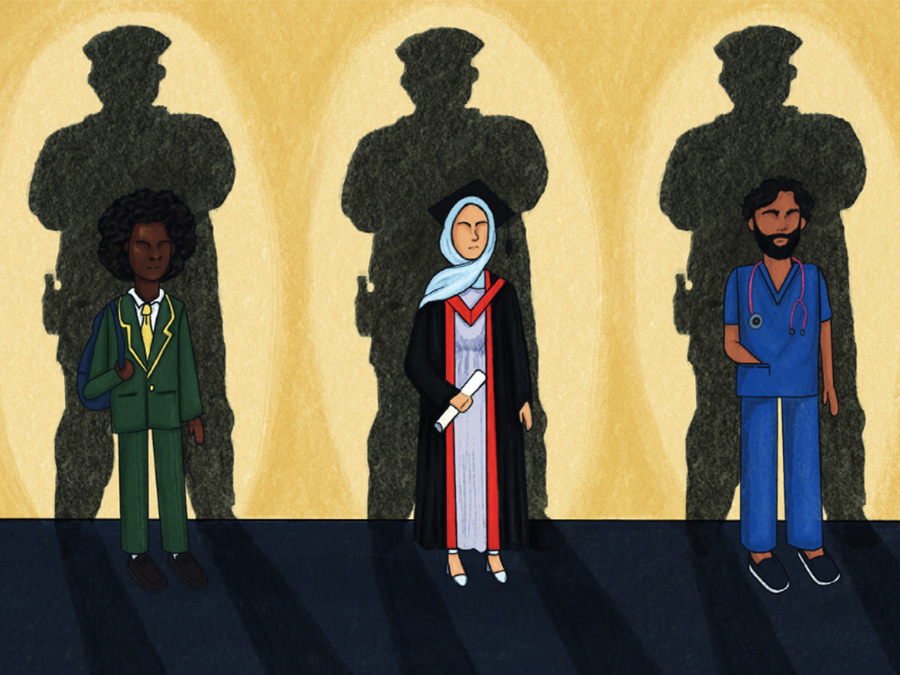

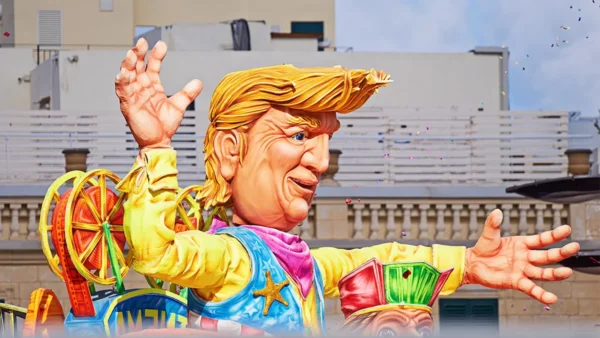
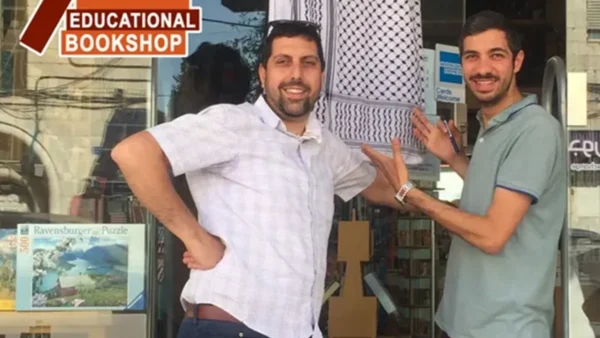
There are 6 comments
My politics date from the late 60s and the anti-Vietnam War movement, and are unchanged 50 something years later – Anarchist, anti-US imperialism, free Occupied Palestine, the lot. Demos don’t seem to be much different, but I’m sure Conservative and Labour governments alike – the police and security establishment never change – would today use our beliefs about the violent overthrow of the system to keep us locked up.
The response to “9/11” throughout the Anglosphere was always about using the designation ‘terrorist’ to look up the state’s enemies and never about capturing the perpetrators. That the ‘terrorists’ are mostly brown was just a bonus. Police are universally racist.
Good luck with your campaign. And commiserations in advance as you discover just how spineless your new replacement “soft left” government turns out to be.
Yeah, the cynicism just blows me away sometimes – using the death of 3,000 people as an opportunity to check items off their wishlist of invasion and repression. Years ago I interviewed some of the families of the people who died on 9/11, and they were pretty pissed off about having their grief weaponised in this way: https://andrewblackman.net/2012/09/ten-years-ago-a-call-for-peace/. This Prevent system was new to me, but you’re right that it’s part of a much broader and older pattern.
Thanks for the election commiserations, but don’t worry, I’m already about as disgusted with Sir Keir Starmer as I think it’s possible to be. I have zero expectations of him doing anything good for the UK, so I don’t think he’ll be able to disappoint me. As I write that, though, I’m thinking he’ll probably still find a way…
It’s like a Minority and Report and 1984 prequel. The world is sliding into authoritarianism. In the US. it’s shocking how many states have passed laws to ban protests. And the protestors in Atlanta Georgia who are trying to stop “Cop City,” a giant militarized police training facility, are being charged under anti-racketeering laws. Not to mention all the pro-Palestinian campus protests that were peaceful until the police showed up armed to the gills. Apparently our constitutionally enshrined freedoms are now only allowed when they don’t inconvenience or upset anyone. And no making flippant remarks either apparently. It’s truly terrifying.
It is terrifying indeed, Stefanie. Most of us watched Minority Report and shuddered at the dystopian idea of arresting people for “precrime”, but clearly there were some very high-level people who thought, “Wow, what a great idea!”
The treatment of pro-Palestinian protestors is horrific, not just by the police but by all the politicians and media pundits who smear the whole thing with anti-semitism. The idea of young people standing up against genocide having their futures curtailed by an arrest record, retaliatory action by some future employers, and being seen as anti-semitic is heart-breaking. I hadn’t heard about the Atlanta protests. Racketeering? Really?! Unbelievable. The idea of tolerating other points of view, let alone listening to them, just seems to be fading away into history.
This does concern me; I’ve signed my name, so I expect now “They” will be snapping pictures of me walking to and from the library every week, doing my pre-crime things. (Yes, I’d’ve been that kid making that other “joke” too. hee hee).
I don’t know much about UK politics. A kinda-recent season of Serial (Trojan Horse) focused on some of the same issues here. Do you follow their work? I appreciate that the Serial producers raise a lot of complications and unresolved contradictions.
The lack of nuance in the media coverage of so many issues, in the news now, is what’s troubling me most. Including the focus on a single war in the world (ironically on the grounds of traditional homeland concepts “over there” without the same support for “landback” where these protests unfold “over here” flusters me–so hypocritical). The over here-ness and over there-ness bothers me too: this relentless polarisation. And where is the coverage of the war in Sudan, where several million people are dying. (Where was the coverage of the Tigray War in Ethiopia when all the headlines were about Ukraine.) Don’t we have to ask ourselves if it’s simply convenient for political reasons (for votes) and profit (for media) to have one single issue consistently in the headlines and other horrors dismissed.
I’m a bit out of touch with UK politics myself these days, Marcie – I tend to read more international news now. But any time I dip back in, it just seems to get more and more toxic. I haven’t listened to that Trojan Horse podcast, but it sounds fascinating.
Thank you for raising the multiple levels of hypocrisy involved in the media coverage. Some lives are always worth more than others. And we are just supposed to accept a world in which Israelis have a right to an ancient homeland but Indigenous people don’t, in which Ukrainians are heroes for resisting occupation and Palestinians are terrorists. And if we don’t accept the blatant lies and distortions, we are demonised for it.
When viewed according to the moral principles they claim to uphold, the positions of our leaders and their media representatives are utterly inconsistent. When viewed through the lens of power and self-interest, however, they are completely consistent. How did we get these leaders, and why does it make so little difference which ones we elect?